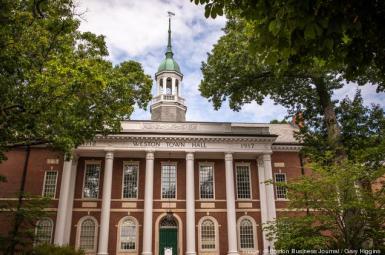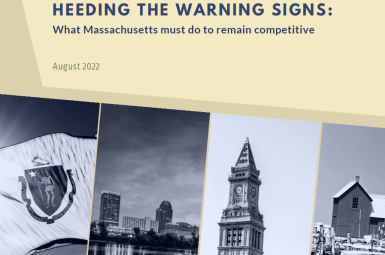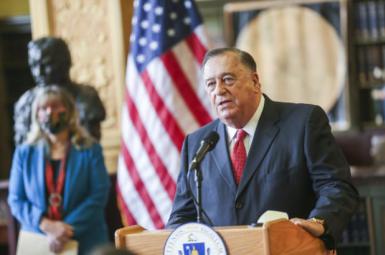“People are moving in droves to lower cost jurisdictions,” Eileen McAnneny, president of the Massachusetts Taxpayers Foundation, a fiscal watchdog group, told WBUR. “We may have to more proactively recruit and retain talent than we’ve had to in the recent past.”
IT IS A WELL-ESTABLISHED fact that Massachusetts sits at the top of many lists which rank how we compare to other states – on healthcare, on education, on the economy (not to mention our sports teams). And by many of these measures, we have historically done well.
The Massachusetts Taxpayers Foundation said in a report that 750,000 people have left the state over the past three decades, and it’s only gotten worse during the pandemic. One of the main reasons? The high costs of everything from child care to housing to transportation. Businesses are also feeling the pain, both from the resulting workforce shortage and the heavy tax burden our state places on businesses.
Dear Senate President Spilka and Speaker Mariano:
As a coalition of business organizations, we write to urge you to pass the economic development bill in informal session as soon as possible. Both chambers unanimously passed comprehensive bills with permanent tax relief, critical investments and smart policy. Those unanimous votes indicate the widespread support for advancing such legislation and underscore the importance of the bills’ provisions. We urge you to enact the final version without delay.
According to census data, more than 46,000 people emigrated out of Massachusetts between 2020 and 2021, the fourth largest exodus in the country behind New York, California, and Illinois. A new report warns this is one of several concerning trends that could erode the state's economic growth, particularly at a time when more employees can work from almost anywhere.
THE MASSACHUSETTS Taxpayers Foundation released a dire warning Friday that the state’s competitive economic edge is being jeopardized by the high cost of living and working in Massachusetts.
The core of the argument is not new, but the 44-page report marshals a host of statistics and evidence to argue that pandemic-related factors like the ability to work remotely threaten to worsen existing problems.
The Massachusetts Taxpayers Foundation, a policy research group, argued in a report released Friday that the Covid-19 pandemic underscored signs that the state's competitive edge was already waning. Tens of thousands of taxpayers were already fleeing the state every year, the report contends, but the pandemic reshaped how and where people work while highlighting the dire need for greater access to child care, housing, safe transportation and workforce development.
The bottom line: High costs pose a much bigger threat to Massachusetts now than they did before COVID-19 changed the way companies and their employees think about remote work. The Taxpayers Foundation report cites particular concerns with an outmigration of talent that is already underway, an exodus that the report links to the high cost of housing and other living expenses. The report seeks to puncture what it calls “a belief in Massachusetts exceptionalism,” that this state will always be home to the best and brightest.
Massachusetts is facing a perfect storm of circumstances which, if not addressed, threaten to undermine the state’s historic advantage in attracting and retaining both businesses and talent, and could ultimately jeopardize our economic edge over other states.
Several budget analysts, including the Massachusetts Taxpayers Foundation and the Center for State Policy Analysis at Tufts University, have suggested the state could afford both tax break initiatives.









